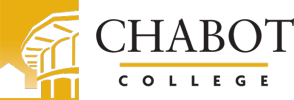GEO 1 or GEOS 1 or GEOS 11 (Choose one)
3-4 units
GE
GEO
1
Introduction to Physical Geography
GEO
1
Introduction to Physical Geography
3 units
This course is a spatial study of the Earth’s dynamic physical systems and processes. Topics include: Earth-sun geometry, weather, climate, water, landforms, soil, and the biosphere. Emphasis is on the interrelationships among environmental and human systems and processes and their resulting patterns and distributions. Tools of geographic inquiry are also briefly covered; they may include: maps, remote sensing, Geographic Information Systems (GIS) and Global Positioning Systems (GPS).
Course Details:Transfers to UC/CSU
or
GEOS
1
Physical Geology with Laboratory
GEOS
1
Physical Geology with Laboratory
4 units
Introduction to the study of the scientific composition and dynamics of the Earth ranging from the atomic scale of minerals to the global scale of plate tectonics. Included is the formation of the Earth, geochemistry, geophysics, hydrology, geomorphology and the interactions between humans and the geologic environment. The course is a foundation course for both the non-science major and majors in the Earth sciences and environmental sciences.
Course Details:Transfers to CSU
or
GEOS
11
Physical Geology
GEOS
11
Physical Geology
3 units
The Earth, its materials, its internal and external processes, and its development through time. Emphasis is placed on a thorough global understanding of Plate Tectonics as a framework and foundation for subsequent geologic topics and concepts. Topics include volcanoes, earthquakes and seismology, the Geologic Time Scale and the formation of the earth, rocks and minerals, hydrology, erosion, beach systems, environmental geology, glaciation, groundwater, etc. Course content includes the historical development of key geologic concepts. The course is a foundation course for both the non-science major and majors in the Earth sciences and environmental sciences.
Course Details:
